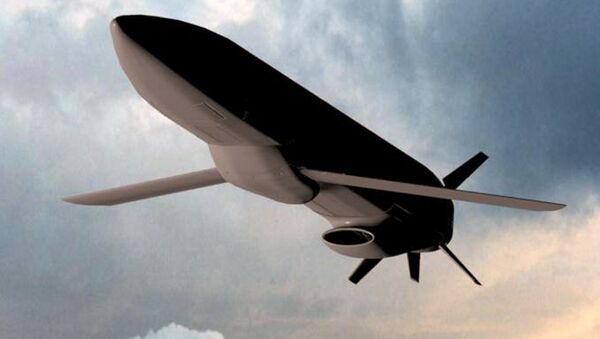The US Naval Air Systems Command (NAVAIR) plans to clinch a contract with the American company Raytheon for the production of the Navy's Miniature Air Launch Decoy (MALD-N) missiles, defence news website Jane’s reports.
According to the news outlet, “no potential contract value, timeline, or MALD-N numbers” have been disclosed.
At the same time, Jane’s reported that NAVAIR is due “to issue a cost plus incentive-fee contract to Raytheon Missile Systems (RMS) for the commencement of low-rate initial production (LRIP) for the naval derivative of the US Air Force's (USAF's) ADM-160C MALD-Jammer (MALD-J) system”.
The MALD system’s goal is to confuse enemy air defence systems by duplicating friendly flight profiles and radar signatures of a manned fighter jet or a bomber.
Jane’s notes that the MALD-J “provides for an additional electronic warfare capability to actively jam enemy air defences, and is the basis for the US Navy's (USN's) MALD-N derivative”.
MALD missiles can be launched from any warplane capable of carrying the Raytheon AIM-120 Advanced Medium-Range Air-to-Air Missile (AMRAAM). Those aircraft include the F/A-18E/F Super Hornet and the F-35C Lightning II.
NAVAIR’s moves come after media reports in August 2018 said that the Pentagon reported a series of successful tests of MALD-N missiles carried out at Point Mugu in California.
NAVAIR’s current decision followed the National Security and Counterintelligence Centre's introduction of a strategy for 2020–2022 that ranks China and Russia as major threats.
“The United States is facing increasingly aggressive and complex threats from foreign intelligence services, as well as state and non-state actors”, the centre’s director, Bill Evanina, noted in an introduction to the strategy document.





